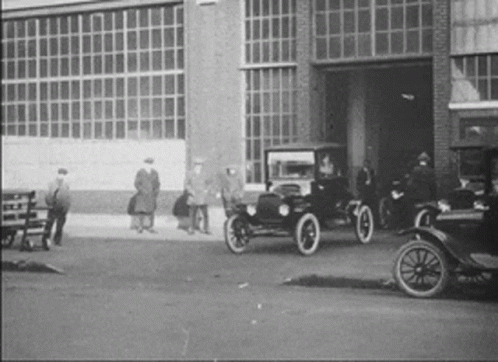To Destroy, or Not to Destroy?
In the inevitable ebb and flow of human existence, things come and they go. Some ideas were always destined to fail, while others go on to shape the course of history. One constant, however, is the role of the human in bringing about change.
Typically, something new replaces something old. As we encounter problems in our lives, we tend to want to fix them, sometimes with the creation of a new thing, process, or idea. While huge leaps in advancements do happen sometimes, there is usually a gradual process that leads to iterative creation. For example, we did not go from walking around with clubs to driving cars overnight. We had to create the wheel, then metal alloys, then fossilized fuel, then a combustion engine and then we could combine all of those in order to create the sum of the car. If humans hadn't have been in a creative mood, none of that likely would have happened. But what about all of the technologies that were left behind during this iterative process? is it worth the upending of society by eliminating the past processes in favor of the chance of something new?
This destruction of older technologies and ideas in favor of newer processes is key to the advancement of human society. Dr Russell Sobel, an expert on Entrepreneurship as well as Schumpeter's theory of creative destruction has many thoughts on the subject.
An Overall Benefit
Overall, I agree that we must be out with the old, and in with the new. Dr. Sobel has some great points about creative destruction, and why it is essential that it continue.
Potential Issues
While I do generally agree with the idea of Creative Destruction, I do think it is important to understand the argument against it. It is objectively sucky if you lose your job. Nobody wants that for themselves or the people they care about. Especially with the recent advancements in disruptive technologies like generative AI, the threat of job loss is at an all time high.
Some may argue that historically, people lost their horse related jobs when the Model T gained popularity. Dr. Sobel even points out that certain members petitioned congress to ban the sale of cars in order to protect their jobs. Since we are better off now with cars than we would be if congress had have banned them, the argument could be made that anytime there is something better, job loss is inevitable and the natural consequence.
However, the current social and economic landscape is different now than it has been in the past. Yes people lost their horse related jobs due to the rise of cars. But we aren't talking about just some horse related jobs anymore. Generative AI could quickly replace the majority of jobs that exist in the world.
While you could argue that if this is the case that their work is no longer the most efficient way to use their time and they should do something different, when talking about millions and millions of jobs, new questions arise. Is disruption worth the potential hit that the US or world economy would take? Could we actually recover from such a wide reaching financial event?
At the end of the day, I am not sure if there is a perfect answer. If we choose to protect jobs, people, or the economy over a new technology, there is no way to tell the grand total sum of everything that society could lose out on. Due to the process that innovation takes, we need to be able to take each and every leap forward we can, and let society dictate what ends up being significant or not.
However, there may be a line. I am sure that at least one useful thing could be learned by conducting experiments on live humans. Is the potential disruptive technology that comes from that worth it? Some may argue yes, but my guess is that most people would argue against widespread human experimentation.
Conclusion
In conclusion, while creative destruction has historically driven human progress, the rapid pace of technological advancements today, particularly with generative AI, presents new challenges. The potential for widespread job displacement and economic disruption requires careful consideration. Society must balance innovation with protection for workers and the economy, but the true costs and benefits of embracing new technologies are difficult to predict. Ultimately, each leap forward carries risks, and we must allow the process of innovation to unfold while remaining mindful of the broader social impact, ensuring that the value of progress outweighs its potential harms.
